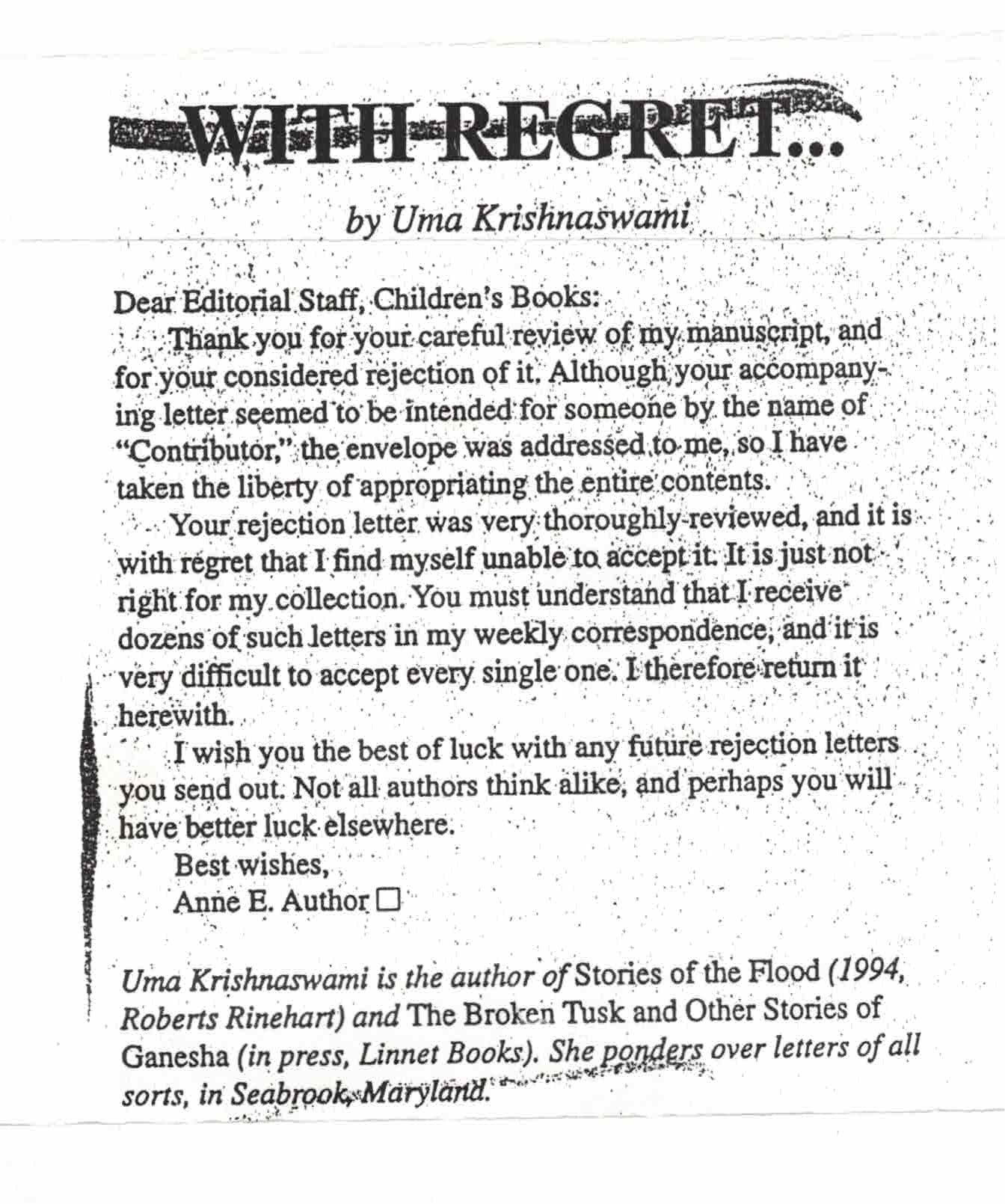Only One Opinion
I see myself as a writer, not an author. Authorship is not something within my control. “Author” is also a noun that begs a qualification. One can be the author of a book or of many books. But can one just be an author? “She’s an author.” That sounds strange to me. An author of what? I want to ask. Of a book? A piece of code? A poem? Her own destiny? Do you see what I mean? But a writer. That is something else. That is who I am, and if no one ever publishes another word of mine I will still inhabit that identity.
(Scroll to the end to see a rejection letter in which I did claim the title of author. Audience and purpose can change the rules).
If you're new to this game and you find yourself tripping over writers' jargon, here's a list with definitions. (Thanks to Barbara Lincoln and also to Anna and her mom!)
20 writing tips I wish I'd heard 20 years ago
You can never be a fair judge of your own work.
Drafts are meant to be drafty.
It doesn't matter where you want the story to go: Where does the story want to go?
Writing takes time.
The beginning is often not what you think it is.
In order to write you need to read.
In order to write well, you need to write a lot and throw away most of it.
If you're writing for children, banish problem-solving adult characters.
Ideas are cheap. What matters is how you bring them to the page.
Take your character to a cliff; then push her off.
Dialogue must serve more than one purpose.
Narrative must carry its weight.
You must serve the story.
You can’t afford to waste valuable critique time looking only for praise.
Don’t depend on adjectives and adverbs to pull weak nouns and verbs out of a jam.
Don’t make your readers work so hard that they lose interest.
But don't connect all the dots either: Trust your reader.
Just because it’s true doesn’t mean it’s going to make a good story.
Read generously so you have lots to give in turn when you write.
Don't crush your inner critic: Make her work for you.
Rejection is part of the deal
Not everything you write will get published. That's just as well! (I should write thank-you letters to editors who wisely rejected my early efforts).
Still, back in the last century, I once received a spate of rejection letters that felt, well, undeserved. I dreamed up this response, which the SCBWI Bulletin published in April 1996.
I've seen several like it floating around the Internet over the years, but this one's my very own historical artifact! Fellow Autodidact Stephanie Farrow saved it years before she ever knew me, found it again last year and took the trouble to mail it to me in a real envelope with a stamp, courtesy of the USPS and Canada Post—for which many thanks.
These days, with submission portals and emails only upon interest, envelopes and letters seem quaint and old-fashioned, but the sentiments they generate haven't changed that much.

